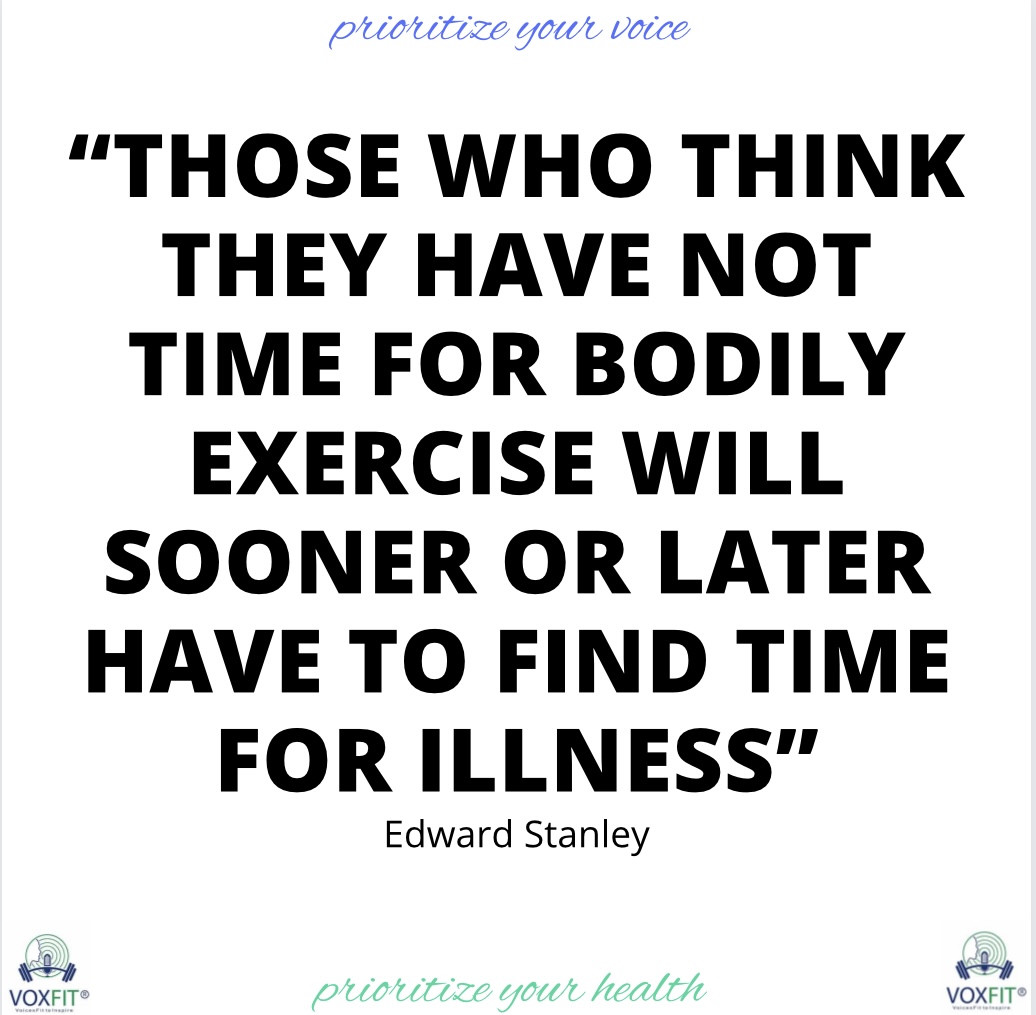Projection, Working HARD for Voice, Bodily Exercise, and PYV Friday!!

The Week of May 9th and May 16th Blogs:
5/10/22 -- Tuesday Toss Up (Projection)

On this week’s #tuesdaytossup, let’s go over some good reminders about how to MOST EFFICIENTLY “BUY” VOLUME…
.
USE your breath (don’t hold it). USE AIR (not effort). Choose vocal ENERGY via breath support, not strain from the throat.
.
Get the “power” for volume from lower down in your body (abdominal engagement versus throat squeeze). The CORE is the gas pedal for voice. Redirect that attention for “oomph” AWAY from the throat.
.
Use CTT strategies. CTT stands for conversation training therapy and is based on a bunch of amazing research. I use it with almost all patients and I teach it to them often the first time we meet. Clear, crisp speech; FEEL the sounds at the mouth; articulately precision. These strategies also greatly improve projection without any effort from the throat.
.
RESONANCE also helps with volume (WITHOUT laryngeal effort) because it creates the most optimal positioning of the vocal folds and capitalizes on the concepts of vibratory sensations in the front of the face… This resonance achieves the most vocal output with the least amount of effort, which is always a (voice) goal!
.
Imagine your voice coming UP and OUT of you instead of your voice pressing or straining in the throat. Imagine it RIDING out on the AIR to whomever you need to project towards, and FEEL it being supported.
.
An often overlooked but extremely important component of projection (or loudness in general) is to ensure you are using AMPLIFICATION if/when needed. Do not rely on your voice and body ONLY, especially if you are required to project for an extended period of time and/or amidst background noise. And reduce or eliminate this background noise whenever you can if you are able. An easy way to improve ease of projection is to do whatever is in your power to reduce competing factors. Work smarter not harder.
.
There are times we all need PROJECT our voices and/or be louder (especially if our occupational voice use duties require it). Do what you can to minimize vocal fold stress, reduce the risk of vocal fold injury, and ensure vocal strength and clarity. Efficiently “buy” your volume by choosing healthy projection! #prioritizeyourvoice
.
.
.
5/17/22 -- Tuesday Toss Up (Working HARD for Voice)

If your vocal folds (VFs) don’t fully come together, you will often experience a feeling of VOCAL EFFORT (normally your body’s response to “try” and make the VFs “work” like they’re supposed to). There are several reasons the VFs may not fully touch (VF paralysis, VF paresis, VF atrophy, the presence of pathology, etc.), and this can make the voice sound raspy, breathy, strained, or effortful. There will likely be reduced range, voice breaks, inability to project, and reduced vocal endurance. This picture actually features the VFs of an indoor cycling instructor who came in with complaints of “hoarseness”, reduced vocal stamina (throughout the day and even during a single class), and feelings of significant effort in order to produce voice (especially related to projection, motivating clients, and while riding/moving at the same time as coaching).
.
Vocal effort can also occur because of much “smaller” changes to the VFs. If your hydration is sub-optimal, then it is proven in research that your VFs will require more effort to be set into motion to vibrate (a.k.a. you’re going to feel like you need to work harder to produce voice). If your VFs are inflamed, irritated, etc. (ex: allergies, a mild sickness, high vocal load, etc.), they will not vibrate as easily and will also require more effort to be set into motion to vibrate: edema/swelling causes the VFs to “weigh more” and irritation or other tissue change can lead to stiffness—in both cases, the VFs will not vibrate as easily as normal).
.
Add your normal vocal duties (work, teaching, coaching, singing, calling in the dogs, cheering for your child at a sporting event, speaking over background noise at a noisy restaurant, etc. etc. etc.)… and your “need” to incorporate vocal effort (because of “what’s going on” on the inside)… and the fact that your extrinsic muscles also “help out” (a.k.a. muscle tension) because your brain often tells them to (since your VFs aren’t efficiently vibrating and your intrinsic musculature is likely unbalanced)…and here you arrive at VOCAL FATIGUE (often sooner than expected or desired). And then your VOCAL DEMANDS and VOCAL EXPECTATIONS (may) need to be slightly altered, which can negatively impact your QUALITY OF LIFE (especially over time). This is just one easy example of how VOICE has SUCH a HUGE impact on quality of life, and also why we include a patient reported outcome measure in all voice evaluations (the VHI-10) to measure exactly that! VOICE is so deeply connected to our lives, emotions, perceptions, and confidence.
.
PRIORITIZE YOUR VOICE by embracing this TRUTH, taking care of and learning about your (vocal) instrument, and getting your vocal folds checked out if you’ve noticed a change lasting longer than two weeks.
.
.
.
#voxfit #tuesdaytossup #voice #vocalfitness #bevocallyfit #occupationalvoiceuser #vocalhealth #vocalwellness #prioritizeyourvoice #protectyourvoice #healthyvoice #educationispower #singer #fitnessinstructor #publicspeaker #speechpathologist #voicespecialist #awareness #beproactive #projection #healthyvolume #vocaleffort
Hump Day Health/PYV: Bodily Exercise

I LOVE this quote. It is SO true. A HEALTHY and ACTIVE body and mind will ALWAYS function the best. This applies to the VOICE as well.
.
.
FIND TIME to exercise (movement IS medicine!). Find time to stimulate your mind. Find time to PRIORITIZE YOUR VOICE… it’s up to YOU.
.
.
If you don’t find time to advocate for your best self (in your daily decisions and habits like finding time for “bodily exercise”, vocal naps, vocal warmups, and/or ensuring you have enough water for the day), no one will find it for you. And just like this quote says, if you don’t make time for these positive life habits, you will sooner or later have to “find time for illness”. Be PROACTIVE, not reactive.
.
.
Exercise your mind. Exercise your body. Exercise your VOICE. Don’t “find time” for illness. Make it a point everyday to FIND TIME for WELLNESS.
.
.
.
.
#voxfit #voice #exercise #exerciseyourvoice #keepmoving #yourbestvoicenow #voicesfittoinspire #publicspeaking #voicedisorders #speechpathology #speechpathologist #occupationalvoiceuser #voicefitness #vocalfitness #fitness #fitvoice #voicespecialist #fitnessinstructor #voicetherapy #voicecoaching #radiateconfidence #healthyvoiceuse #dynamicvoiceuse #strengthenyourvoice #inspireothers #vocalwellness #findtimeforwellness #beproactive
PRIORITIZE YOUR VOICE!
It’s Prioritize Your Voice Friday… So how are you prioritizing your voice today? And everyday? As an OCCUPATIONAL VOICE USER, it should be one of your top priorities!
.
.
Shouldn’t PRIORITIZING your voice be high on your list?!
What do you need to know to keep your voice healthy? You should understand how the voice works, how to protect and care for your voice, and how to use your voice and entire vocal mechanism in the most efficient, effective, and dynamic ways possible.
.
.
I’m super PASSIONATE about this population of voice users (I’m one and most of you are too), and am HERE TO HELP! Reach out with any questions, concerns, or if you’d like to work together.
.
.
#voxfit #desiretoinspire #aspiretoinspire #changelives #radiateconfidence #vocalinstrument #voice #voicefitness #vocalfitness #voicesfittoinspire #vocalathlete #occupationalvoiceuser #speechpathology #voicespecialist #teacher #instructor #fitnessinstructor #singer #performer #emcee #gamehost #clergy #sales #coach #speechpathologist #voicetherapy #voicedisorders #prioritizeyourvoice

